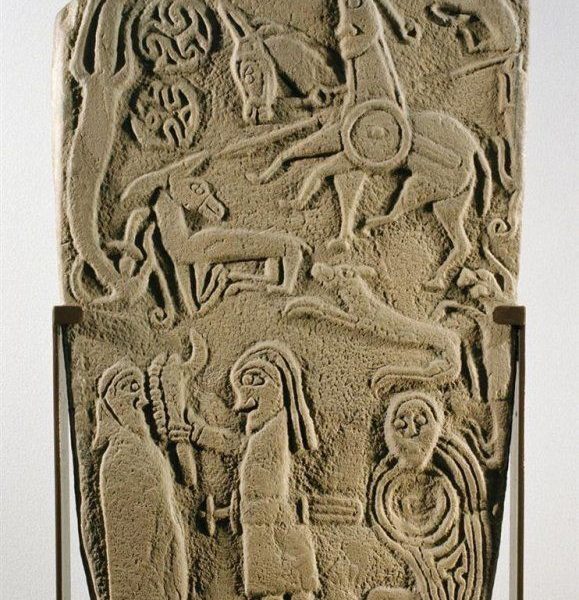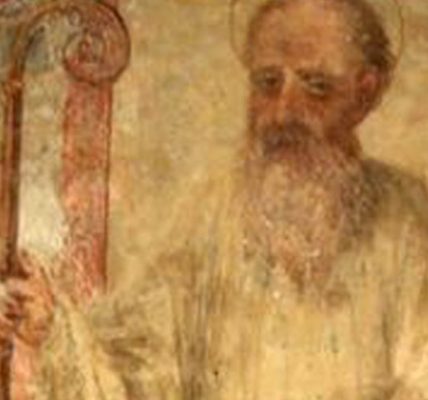A bit of ancient history this time; something from the very dawn of the Order that caused scars that reverberate to the current day.
One of the key clauses of the Code which made it so appealing to the Roman-tradition magicians of the eighth century was the “join or die” policy enforced by some of the more militant founders. This was fine for pushing around less powerful wizards – and with Bonisagus’ new system and the Parma Magica most wizards were less powerful than the Order of Hermes – but came unstuck when the Order finally ran up against a non-Hermetic magician too powerful to bully.
The Order’s history records his name as Dav’nalleous, but more correctly he was called Damhan-Allaidh, which means The Spider in the language of the Gaels. He was a magician of the Pictish tradition, known to the Founders of Houses Bjornaer and Merinita, and based in Fortriu, a remote kingdom in the far north of the British Isles. He was distinctly uninterested in joining the Order, sharing his power, or being constrained from wreaking bloody havoc on anyone who challenged his power.
This was the early ninth century; the Order numbers in the dozens and many of the Founders were still alive. To demonstrate his contempt for the Order, he made long-range magical attacks on covenants in Europe – destroying the covenant of Spear of Taranis (which is now the Motherhouse of Icy North); making an attack on Mercere that many suspect was instrumental in, or the cause of, the loss of his Gift; and finally, attempting to assassinate Trianoma, the most senior remaining living Founder.
Britain was new to the Order at the time, a stronghold of the House Forgotten, and it was also against them that Dav’nalleous brought his malice. The new covenants of Britain called for assistance from the Order, and Tytalus’ apprentice Pralix, armed by Flambeau and armoured by Verditius, led a force of half a dozen apprentices of Flambeau and Tytalus to find, corner and kill this upstart non-hermetic sorcerer.
This went as well as could be expected. Overconfidence in their skills and the effectiveness of the Parma Magica and underestimating the power of this rogue sorcerer led to a series of bloody defeats and fatalities, until eventually all of the young magi who had come over in Pralix’ retinue were killed. Pralix herself retreated south and over the course of a long winter, made contact with many of the other minor magical traditions which Britain seemed so overrun with. They too had suffered from the depredations of Dav’nalleous – especially his own tradition, the gruagachan of the Kingdoms of Dal Riada, Strathclyde and the Isles. By offering to teach them the parma magica, Pralix cobbled together a second army of minor magicians, hedge-witches, soothsayers, summoners, gruagachan, Saxon godhi and those of the House Forgotten who could fight. Over the course of the following spring, Pralix and her ragtag army hounded Dav’nalleous, and finally brought him to heel in the Ochil Hills of Scotland.
This left a major issue for the Order of Hermes. Pralix had shared the crown jewels -the Parma Magica – with nearly forty magicians, many of whom couldn’t read, let alone speak Latin or grasp Hermetic theory. And these magicians could not be un-taught it; nor should the costs they bore of the battle against Dav’nalleous be ignored. While many European magi regarded them as an uneducated rabble best ignored or eliminated, Pralix was outraged on their behalf, and announced that if the Order of Hermes would not respect those who fought and died for them, she would preside over a new Order; an Ordo Miscellanea that would stand as rival to the Order of Hermes.
For a few months it seemed as if this would stand, but Trianoma, the great diplomat, came out of retirement and in one last feat of mediation, won entry to the Order of Hermes for Pralix’ army as House ex Miscellanea.
And so until the 1300s, ex Miscellanea became a clearing-house for fringe traditions and edge cases; magi who did not fit anywhere else. But they remained strongest in the British Isles – especially after the fall of the House Forgotten, their only real rivals for the Isles.
Over the course of the turn of the century, ex Miscellanea magi started to disappear from the European Tribunals; and then, access to Britain and Ireland became ever more difficult for Hermetic magi until it ceased altogether. Many wonder if Pralix’ dream has finally come again; has the Ordo Miscellanea once more reared its head, and is it behind the invasion force that scored such devastating victory at Crecy? Does this explain why the Tytalus Domus Magna, at Fudarus in Brittany, has gone silent?




